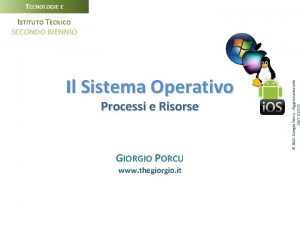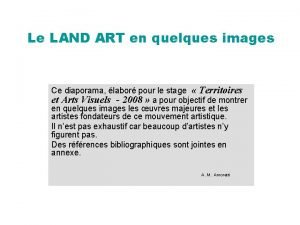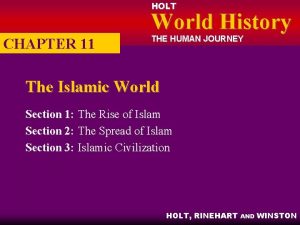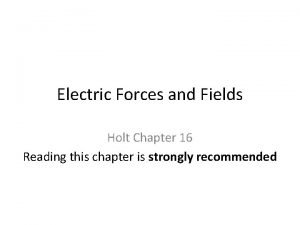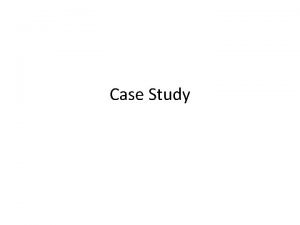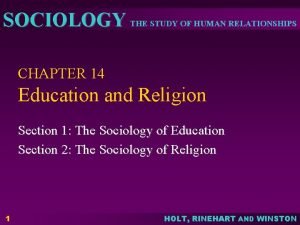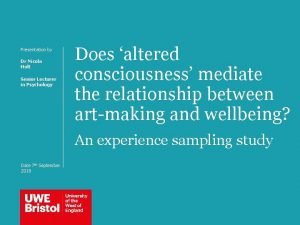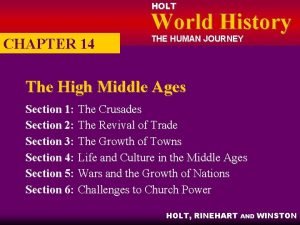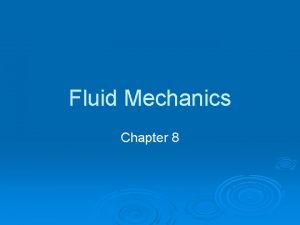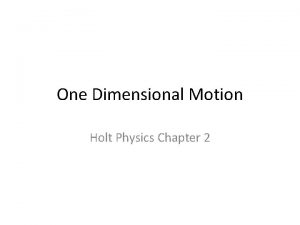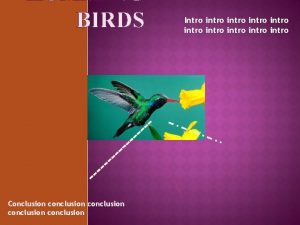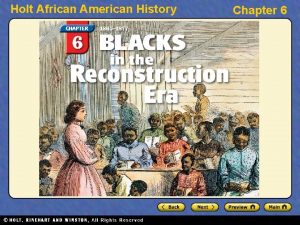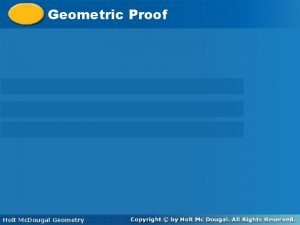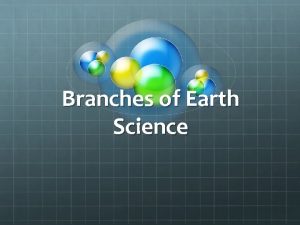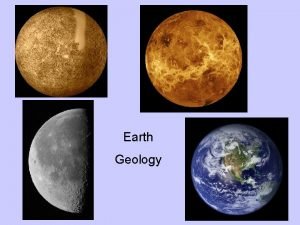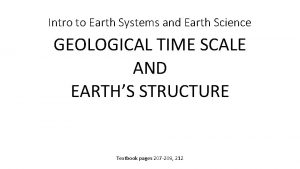Intro to Earth Science Holt Earth Science Ch















- Slides: 15

Intro to Earth Science Holt Earth Science, Ch 1

What is Earth Science? n n Earth science is the study of the Earth and the universe around it. The study of the Earth was first recorded by the Chinese in 780 BC.

Branches of Earth Science n The 4 major areas of earth science: • Geology: study of history, processes, & structure of Earth • Oceanography: study of Earth’s oceans • Meteorology: study of Earth’s atmosphere • Astronomy: study of the universe beyond Earth

Importance of Earth Science n n Natural forces not only shape Earth, they also affect life. Earth scientists help us to understand our place in the universe & resources available.

Science: A Process n n The goal of science is to explain the world around us. Scientists use the scientific method to discover information about the Earth.

Step One: Ask a Question n Scientific method begins with observations. This is the process of using senses to gather information about the world. Observations lead to questions, which begins the scientific method.

Step Two: Form a Hypothesis n n Once a question is asked and basic info has been gathered, a scientist forms a hypothesis. This is an explanation to the question based on information gathered (an educated guess that needs to be disproved or supported).

Step Three: Test the Hypothesis n n A hypothesis is tested by performing experiments. Experiments are procedures carried out using variables to test the hypothesis. Most experiments also have a control group. The control group does not have the independent variable applied to it, & is used as a standard to measure against.

Experiments and Variables n There are 2 types of variables: • Independent variables are factors that are controlled by the experiment designer. • Dependent variables change as a result of the independent variables (these are measured). n In most experiments only one independent variable is tested.

Step Four: Draw Conclusions n n After conducting an experiment many times, a scientist can decide if their hypothesis was supported or disproved. Many times experiments lead to new questions and therefore, new experiments.

Peer Editing n n n Scientists work within a system of peer review. In this system, other scientists in the filed double-check results to make sure the experiment is reproducible. Only then is research or study published. Even then arguments occur! This is how a hypothesis becomes a theory, a generally accepted explanation of a phenomenon.

Scientific Measurement n n n Measurement is the comparison of an object or event to a standard unit. Scientists use the International System of Units (SI) or metric system. The SI units are all based on intervals of ten.

Accuracy and Precision n Accuracy and precision are two commonly used terms in science experiments. Accuracy refers to how close a measurement is to the true value of the thing being measured. Precision is the exactness of the measurement itself.

Error n n n Error is the amount of imprecision or variation in a set of measurements. Error is commonly expressed as percentage error or confidence level. All experiments contain a certain amount of error, which can be calculated and then explained.

 Grafi di holt
Grafi di holt Token economy psychology
Token economy psychology Token economy examples for adults
Token economy examples for adults Nancy holt buried poems
Nancy holt buried poems Holt vidék elemzés
Holt vidék elemzés Holt world history the human journey answer key
Holt world history the human journey answer key Holt physics chapter 16 test
Holt physics chapter 16 test Wilson company prepared the following preliminary budget
Wilson company prepared the following preliminary budget Holt lelkek átsegítése
Holt lelkek átsegítése Amelia holt
Amelia holt Sociology the study of human relationships answers
Sociology the study of human relationships answers Nicola holt uwe
Nicola holt uwe World history the human journey
World history the human journey Holt physics chapter 8 fluid mechanics test answers
Holt physics chapter 8 fluid mechanics test answers Alec holt
Alec holt Bungkas tree
Bungkas tree
